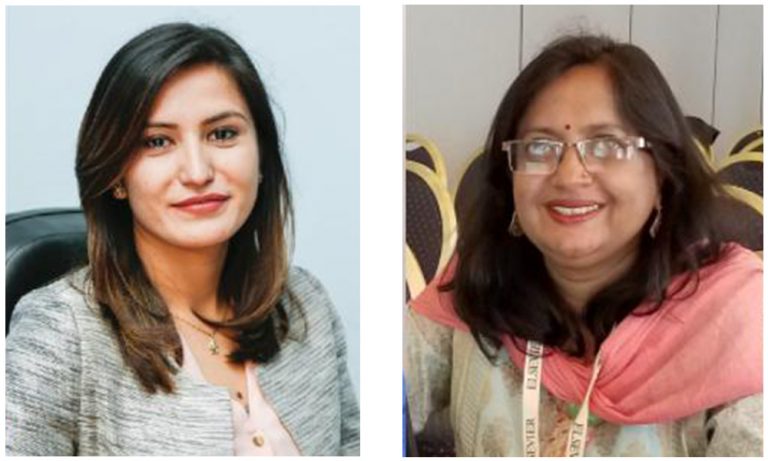
Two Nepali scientists, Dr. Prativa Pandey and Dr. Tista Prasai Joshi are amongst the 20 women scientists selected as part of the second cohort of the OWSD Early Career fellowship programme. The 20 scientists will receive up to USD 50,000 to lead research projects at their home institutes, and to build up research groups that will attract international visitors. Funding for the fellowship is provided by Canada’s International Development Research Centre (IDRC).
According to their website, Prativa Pandey is a Research Scientist at Research Institute for Bioscience and Biotechnology (RIBB). Her research produces useful compounds from citrus fruit waste by way of green extraction and solid-state fermentation methods. Fruit and vegetable waste is a serious problem in Nepal, where it is dumped into landfills and water bodies and produces toxic greenhouse gases and health hazards. By developing sustainable extraction techniques to be used on the fruits, Dr. Pandey will produce bioactive compounds that can be utilized as key functional ingredients in nutraceuticals (food or components of food that provide medical or health benefits), preservatives, and cosmetic products, thereby reducing food waste while alleviating adverse environmental effects.
Similarly, Tista Prasai Joshi is a Scientific Officer at Environmant and Climate Study Laboratory, Nepal Academy of Science and Technology (NAST). Her research project aims to prepare, characterize and apply iron-manganese based adsorbents for efficient removal of methylated arsenic from water. Approximately 100 million people in rural Asia are affected by exposure to arsenic in drinking water and in the food supply, largely through application of common herbicides and pesticides. Through developing low-cost iron-manganese based adsorbents, Dr. Prasai Joshi expects to implement improved water purification techniques in small communities as well as large-scale industrial treatment systems.
The 20 scientists, all from the developing world, and representing 14 countries, met in Trieste, Italy from 16 – 20 September, 2019 for a week-long orientation workshop. The workshop prepared them towards managing their fellowship and for scientific leadership.
The remaining 18 fellows are Mercy Badu (Ghana), Pradeepa Bandarnayake (Sri Lanka), Salifou Chakirath Folakè Arikè (Benin), Eunice Enríquez (Guatemala), Nasrin Sultana Juyena (Bangladesh), Dina Zawadi Machuve (Tanzania), Edem Mahu (Ghana), Ossénatou Mamadou (Benin), Priscilla Kolibea Mante (Ghana), Natalia Montellano Duran (Bolivia), Winfred Mueni Mulwa (Kenya), Ritah Nakayinga (Uganda), Cécile Harmonie Otoidobiga (Burkina Faso), Cécile Harmonie Otoidobiga (Burkina Faso), Somphouthone Phimmachak (Lao People’s Democratic Republic), Volatsara Baholy Rahetlah (Madagascar), Claudia Suseth Romero Oliva de Hirschmeier (Guatemala), Newayemedhin Tegegne (Ethiopia).




